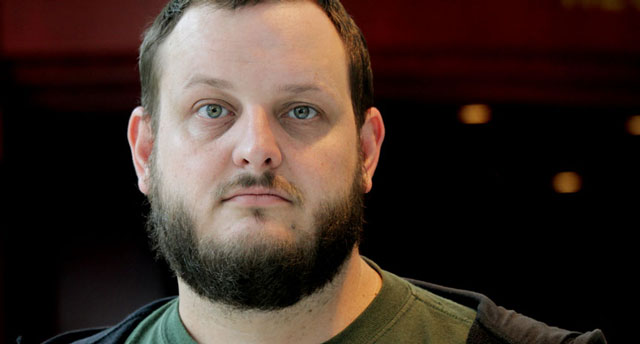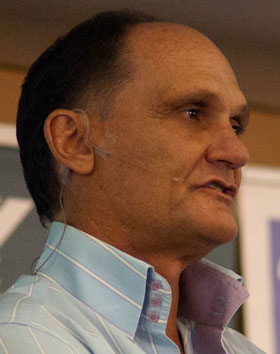
If anyone needs confirmation that there is a price war going on in SA’s cellphone sector, a quick look at last Sunday’s newspapers will confirm it.
Take the Sunday Times, for example. In the first 16 pages of news last week, five pages had huge advertisements from Cell C, Vodacom and MTN.
Cell C was advertising its new, simplified and transparent packages, and that it now offers customers the iPhone. It was markedly different to Vodacom, which was advertising its new smartphone packages that pretend to be simplified, but revert to the smoke-and-mirror tactic of obfuscation, and MTN, which persisted with its Mahala offering that has benefits that depend on the time of day and the day of the week.
Honestly, who can keep up with this level of fudging? How long have consumers been calling for clear-cut packages that are comparable?
It is clear the status quo remains. There is still a persistence among cellphone giants to keep consumers in the dark in terms of the real cost of their cellphone use. It seems the logic is that if consumers cannot work out how to get a better deal from a competitor, they probably cannot work out how badly they are getting ripped off.
Only one cellphone operator is really speaking the language that consumers want to hear and that is Cell C, under the leadership of former Vodacom chief executive Alan Knott-Craig.
Transparent and cheaper
That it is Knott-Craig who has shaken up the market with transparent and cheaper prices is an irony difficult to stomach for those in the industry who remember that, as the founding Vodacom chief executive, he was instrumental in fighting regulations aimed at increasing competition in the sector and bringing down prices.
He now finds himself at the helm of the operator he fought so hard to sideline, which is beyond bizarre; he benefits from the very regulations he sought to delay for all those years. Then again, who else knows the competition so well that he knows all their weaknesses? Knott-Craig would be first on that list, because many see him as an architect of SA’s cellphone sector.
So, we have a situation in which Knott-Craig is reportedly making claims such as “price is not a strategy, but it sure beats the hell out of strategies based on high prices” and “mobile termination rates are one weapon regulators have to get more competition in the market”.
He has even gone as far as taunting the mobile giants. “We have still not finished giving consumers what they want,” he told TechCentral. “It’s not perfect yet, I know, but a helluva lot better in terms of simplicity, choice and price than they can get today anywhere [else]. Once the government and Icasa [the Independent Communications Authority of SA] start actively pumping for a more competitive market, we will make it even better for the consumer.”

Mobile termination
This is quite a U-turn from the Vodacom Knott-Craig, who used every trick in the book to delay and prevent the introduction of mobile termination rates decreases, including taking the regulator to court.
Mobile termination rates, also known as interconnection rates, are the price that one cellphone operator charges another to carry a call on its network.
MTN pays Vodacom 56c/minute when an MTN customer calls a Vodacom customer. A few years ago, mobile termination rates were as high as R1,25/minute.
Many in the industry have alleged that the rate was set this high by Vodacom and MTN in the run-up to the launch of Cell C. The aim apparently was to ensure that Cell C remained a smaller player because it could not compete on price.
The sector called on the regulator to bring down the cost of interconnection, arguing that it would boost competition and lower prices, but the cellphone giants argued that this was not the case. Then, in 2010, Icasa began to slash mobile termination rates and prices started to drop. They are set to be slashed again, to 40c/minute, in March next year.
Asymmetrical termination
However, there is an added element to understand: asymmetrical mobile termination rates. This means that smaller cellphone players, such as Cell C and 8ta, charge larger cellphone players, such as MTN and Vodacom, more to terminate calls on their network than the cellphone giants charge them.
The premium is 15%, which means that, as an example, Cell C charges MTN and Vodacom 64c/minute, but only pays them 56c/minute. This asymmetrical termination rate gives Knott-Craig the advantage to take on the cellphone giants on price.
He has admitted that the reduction in call termination rates is the driver of this new competition and his biggest asset in attempting to double Cell C’s market share from 13% to 26%. He has even gone as far as calling for the regulator to drop the mobile termination rate as low as 25c/minute, whereas some smaller players have called for the rate to drop as low as 15c/minute.
The question is: if mobile termination rates can fall this low, how were MTN, and Vodacom under the leadership of Knott-Craig, allowed to get it as high as R1,25?
However murky the role Knott-Craig has played in this saga, there is no denying that he is now talking the consumer’s language. Since taking charge at Cell C at the beginning of April, he has slashed contract and prepaid rates to a standard 99c/minute no matter which network you are calling and at what time.
Framework of simplicity
These calls are also billed per second from the first second, which is not something Cell C’s competitors can claim.
Knott-Craig has further slashed the rates for calls to 38 countries to 99c/minute and slashed data prices.
These are the headline-grabbing changes. What Cell C is actually offering is an entirely new framework of simplicity.
Contracts are now offered over periods of six, 12, 18 and 24 months, consumers can choose to purchase a phone through Cell C or bring their own, and voice minutes, messages and data roll over if they are not used. These are all fundamental changes that consumers have wanted for years.
The answer from the cellphone giants has been uninspiring, to say the least. Instead of moving into this new consumer-driven world, they are content to sit back and wait, using smokes and mirrors to keep their customers in the dark.
It is no wonder that consumers are hailing Knott-Craig as a consumer champion and praising Cell C, even though this proves how short their memories are. — (c) 2012 Mail & Guardian
- Visit the Mail & Guardian Online, the smart news source

